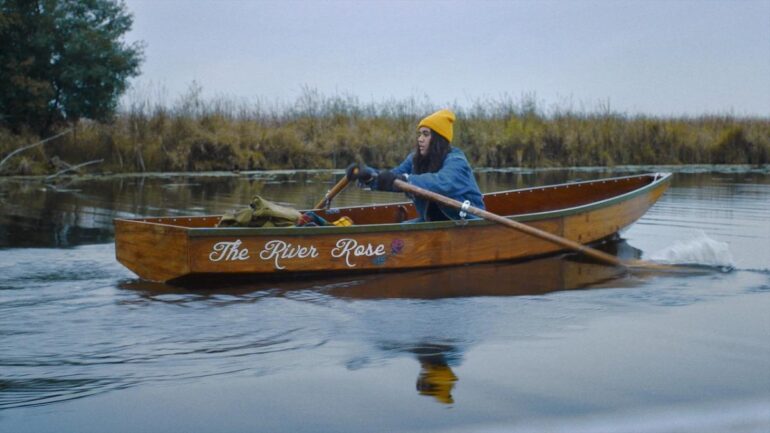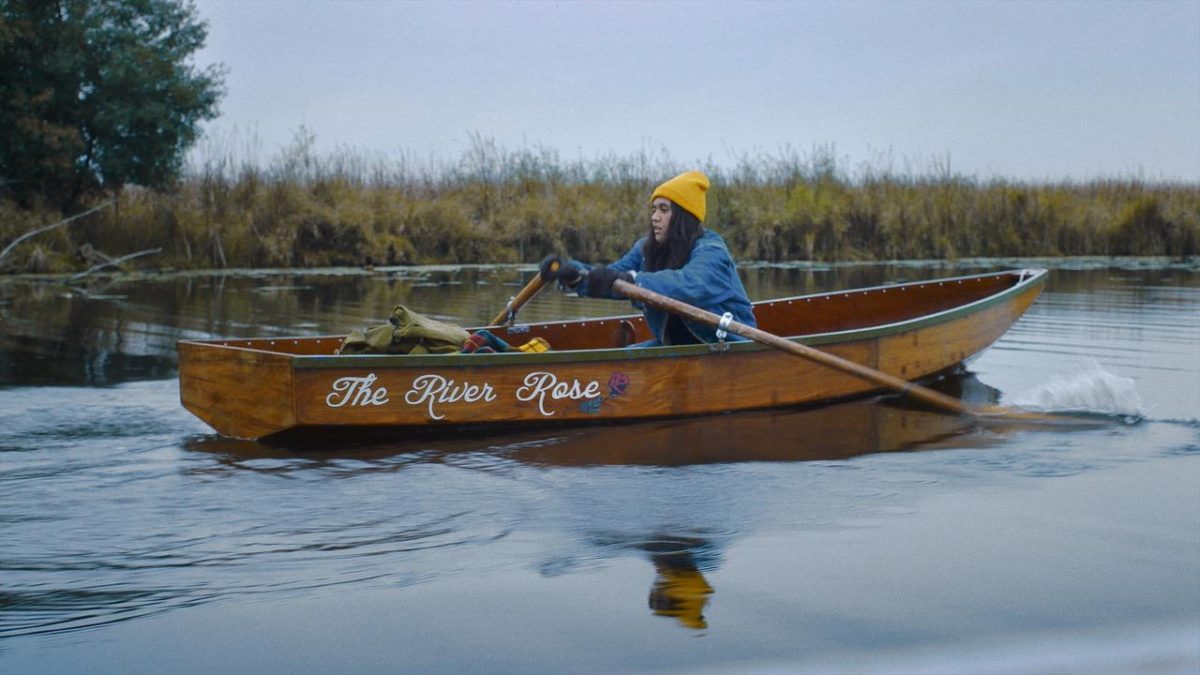In times like these, it becomes easy to forget that life is hard, no matter what the period. The late 1970s were no exception, especially in the United States. The Vietnam War had ended, the Roe v. Wade ruling marked the beginning of the culture wars, and young people were being left behind across the nation.
Haroula Rose’s Once Upon A River reflects on this period by telling a story through a young Native American girl’s eyes. Rose’s film has its uplifting moments and an overall good message about what it means to appreciate life in hard times. Unfortunately, a few flaws within the storytelling hold it back from being a great movie.
Based on the novel by Bonnie Jo Campbell, Once Upon A River follows the journey of 16-year-old Margo Crane through the wilderness of Michigan. After her father is shot and killed following a quarrel with a perverted businessman, Margo takes a rowboat downriver to search for her estranged mother. Margo encounters many obstacles in her quest for her loved one, namely certain people she meets along the way. However, her search also brings forth lessons about loving oneself and accepting life’s harsh realities.
As with any coming-of-age film, the key to an effective delivery lies in the characters and their portrayal. Kenadi DelaCerna stars in her debut role as Margo Crane, and her performance is quite polished. She is mostly silent through the film with a line or two interspersed in her scenes. The strength of her performance lies in her subtlety as she slowly develops a more assertive persona. She knows how to deliver messages through silent eye contact, and for someone new to the big screen, this is quite the feat. Against veteran actors such as John Ashton and Coburn Goss, she has a lot to work with and vice versa, making for compelling performances all around.
Possibly the most intriguing aspect of the film is the setting. Once Upon A River takes a unique approach by utilizing the 1970s as the period. We’re presented with immediate contrast between the period’s industrialized world against the backdrop of forests, rivers, and wildlife. Margo is clearly at home with nature as a skilled hunter and fisherman, but when it comes to interaction with other people, she faces a significant handicap. Likewise, Rose’s film does a good job of portraying a young girl forced to adapt to an ever-changing world.
On this note, only once is Margo’s Native American heritage addressed in the film – specifically by actor Ajuawak Kapashesit, who mentions how the White Man tried to eliminate the Natives for centuries. Interestingly, Margo’s father, Bernard, is portrayed by actor Tatanka Means, the son of notable American Indian activist Russell Means. While the film doesn’t spend too much time on the Native American experience, it most definitely shows the harrowing perspective of being a stranger in your own country, as is Margo’s case. As a Native American, a child of divorce, and a teenaged girl, she’s forced to remain silent while finding her voice amidst significant hardship. Once Upon A River showcases these dilemmas quite well, making it a thought-provoking film in many ways.
In terms of storytelling, however, Rose’s film misses a few marks.
Margo’s journey brings her into contact with certain people that shape her journey. This includes an aspiring teacher and a pair of older men living in a trailer. While both give her lessons on the values of education and good times, these episodes are not fully developed as they should be. The portion with John Ashton, for instance, shows his gradual development from a cynical old man to an optimistic individual. While this is expected, it comes and goes in less than five minutes – and it’s not the first time moments like this happen. Said approach doesn’t necessarily torpedo the film, but Once Upon A River definitely takes some hits as a result.
Which is a shame, because Once Upon A River has an interesting premise with characters that are neither dry or dull. It takes a somewhat overlooked period in American history and weaves in a decent coming-of-age story without getting preachy. For its faults, the film makes up for it through the performances, which keeps the film afloat from beginning to end.
Review screener provided.
READ NEXT: 7 Best Horror Movie Sequels For This Halloween
Some of the coverage you find on Cultured Vultures contains affiliate links, which provide us with small commissions based on purchases made from visiting our site.


